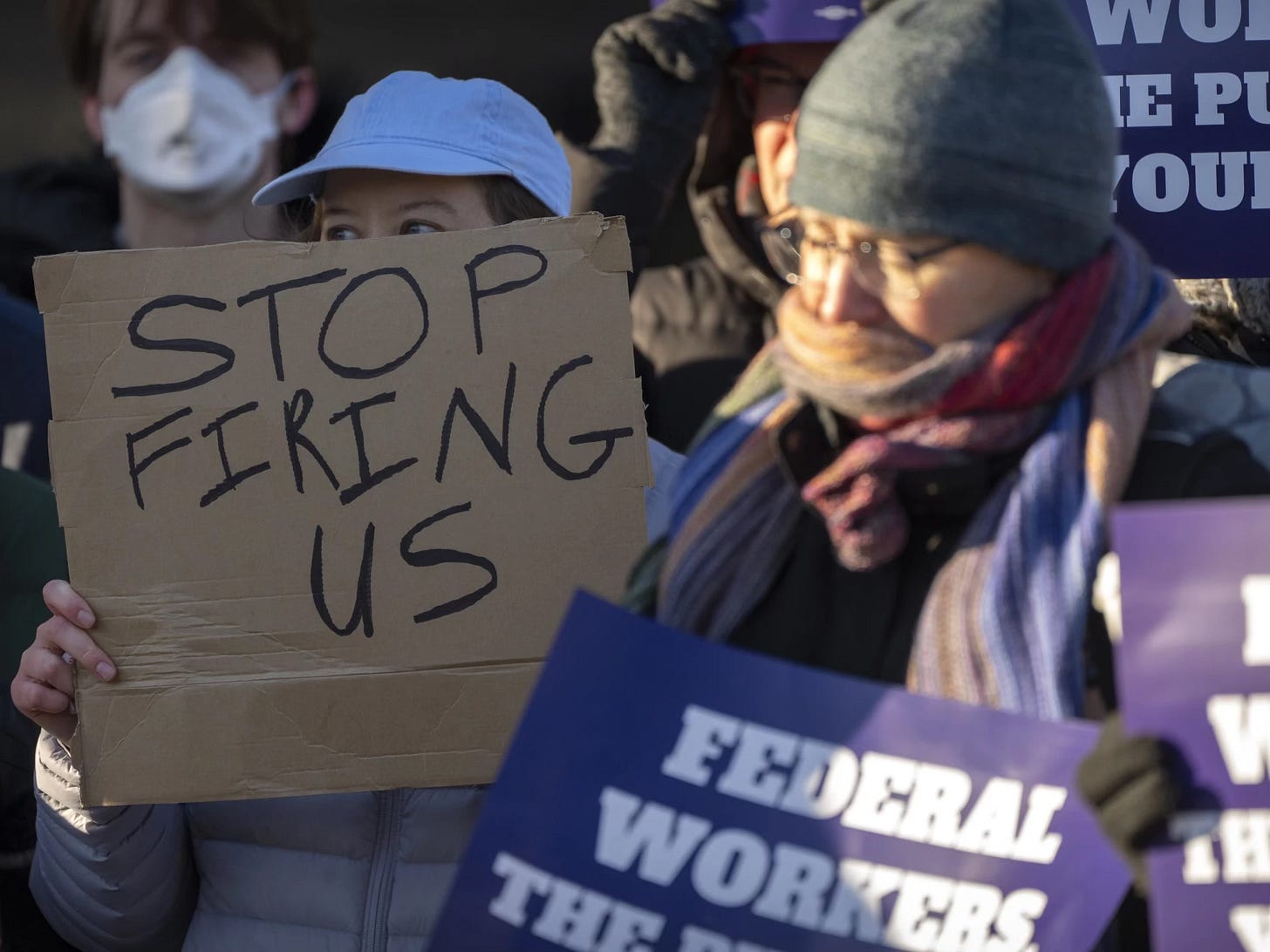
Hard, Unprofitable, and Often Invisible
If you’ve ever questioned the quiet, often unseen value of public service or found yourself torn between admiration and frustration with government, Michael Lewis’s new book, Who Is Government? The Untold Story of Public Service (Penguin Books, 2025) offers a compelling perspective worth considering.
Government is not a monolith. It’s not bureaucracy in the abstract or policy on paper. It’s people. And in some cases, it’s people doing work that quite literally no one else will do because it’s hard, unprofitable, or invisible until it fails.
Lewis curated a remarkable cast of writers - Casey Cep, Dave Eggers, Geraldine Brooks, W. Kamau Bell, John Lanchester, Sarah Vowell, and others - to profile everyday civil servants who keep critical pieces of American life moving forward. The result is a humanizing, skillfully told reminder that competence, accountability, and commitment still exist in public life even if we rarely see them spotlighted.
From Coal Mines to Cemeteries
The book opens with Christopher Mark, a former coal miner who became a Department of Labor engineer. Through decades of slow, technical work, he helped rewrite national safety protocols for mine roofs. By 2016, there were zero fatalities from roof falls in U.S. coal mines. This was a landmark achievement made possible not by a market incentive, but by one man’s steady service within a federal agency.
At the height of the Vietnam War, a coal miner was nearly as likely to be killed on the job as an American soldier in uniform was to die in combat, and far more likely to be injured. - Christopher Mark (Chapter 2: The Canary)
Another profile, beautifully written by Casey Cep, features Ronald Walters of the National Cemetery Administration. Under his leadership, the administration expanded its reach so that 94% of U.S. veterans now live within 75 miles of a burial site where their service is honored. His work is administrative, yes, but also deeply moral and built on care and precision.
Hidden Wins in Health and Cybersecurity
Geraldine Brooks brings to life the story of Jarod Koopman, a cybercrime investigator at the IRS. Koopman’s work has led to the arrest of hundreds of online pedophiles, the rescue of children, and the recovery of billions in stolen funds. His job straddles criminal justice, data analysis, and public protection; all without fanfare or much public awareness.
Then there’s Heather Stone, an FDA scientist whose rapid decision-making saved a child from a rare and deadly brain amoeba. She also built CURE ID, a reporting tool that could revolutionize rare disease tracking, although it languished due to the system’s internal inertia. Even excellence within government faces headwinds.
When the Mission Outlasts the Applause
Dave Eggers’ essay on NASA’s Jet Propulsion Laboratory reflects on what happens when the work being done is so distant from profit or polling that it only makes sense in terms of human curiosity. These are the civil servants charting distant planets. Their reward is discovery, not acclaim.
The scientists I met [at JPL] were exquisitely aware that they were spending taxpayer money, and they were determined to justify the faith put in them. - Dave Eggers (Chapter 3: The Searchers)
Other stories include the statisticians who build the Consumer Price Index, the archivists who safeguard our national memory, and many others whose work shapes everyday life in ways that rarely make the headlines.
Why It Matters Now
The book arrives at a moment when government is routinely denigrated, starved, or weaponized. And while Lewis doesn’t deny bureaucracy’s flaws, he pushes us to stop conflating dysfunction with the whole. He shows us, essay by essay, that real people - thoughtful, accountable, often brilliant people - still inhabit the institutions we’re told to dismiss.
The takeaway isn’t naïve boosterism. It’s a challenge. If these people exist (and they do) then it’s on all of us to decide what kind of government we want to support, protect, and reform. These profiles remind us that the stakes are high not because government is abstract, but because it is personal. It touches everything: the air we breathe, the food we eat, the dignity of a final resting place.
When Public Service is Considered Expendable
This becomes all the more urgent in light of recent developments at the U.S. Agency for International Development (USAID). The 2025 wave of cuts stands as a stark reminder of what is lost when public service is treated as expendable. Driven by a political agenda to dismantle parts of the federal government, these reductions have gutted more than 80% of USAID’s programming and workforce. USAID personnel have been publicly vilified by political figures who labeled the agency a “criminal organization” and its professionals as “radical-left Marxists,” language that deploys falsehoods to justify mass firings and the dismantling of global programs.
These accusations stand in sharp contrast to the reality on the ground: USAID staff and implementers working in war zones, famine-affected regions, and in public health emergencies, often with little protection and no spotlight. Many now face not only the grief and anxiety of being cut off from work they believe in, but also the immediate pressures of caring for their own families without support or security.
These are not abstract losses. They weaken our ability to respond to food crises, natural disasters, and disease outbreaks, and to prevent political violence and insecurity from spreading beyond borders and reaching our own communities. They affect Americans directly by diminishing our diplomatic reach, fueling global instability, and stripping away the tools that help prevent crises before they escalate. When public service unravels, the world becomes more fragile and public service itself becomes a more perilous and thankless pursuit.
The Promise of Public Service
The essays in Who is Government? illustrate that government is not just a structure, it’s a practice. It’s the ongoing, often unseen labor of people working not for headlines but for outcomes: safer mines, stronger democracies, healthier communities, more stable futures. This isn’t just a tribute to what public service has been. It’s a call to defend what must endure: principled, capable, and valued expertise in service to our communities.
Service to others is the rent you pay for your room here on earth. - Muhammad Ali
At Durable Good, we care about these stories because they affirm that quiet service matters, that care and competence count, even when they’re hard to see. And that behind every system that endures, there are committed people worth knowing. If you haven’t yet explored Who Is Government?, you’ll find it to be a timely and encouraging look at the people who hold so much of our shared life together.
Let’s keep the conversation going. Durable Good shines a light on the individuals and organizations whose work, often overlooked, helps to hold communities together and move them forward. Their stories deserve to be seen, not just as acts of service, but as foundations of a society worth sustaining.




